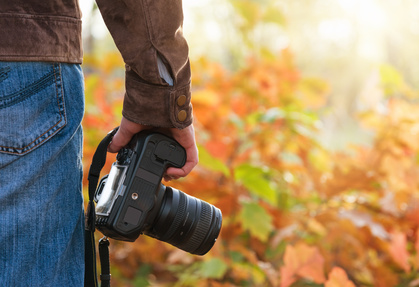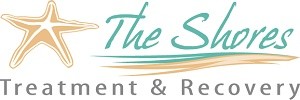
Contributor: Lyle R. Fried, CAP ICADC CHC, CEO of The Shores Treatment & Recovery
 “What are you going to have to change? Everything.” If you’ve spent any amount of time in recovery meetings, you’ve probably heard this sentence a time or two.
“What are you going to have to change? Everything.” If you’ve spent any amount of time in recovery meetings, you’ve probably heard this sentence a time or two.
Moving toward even the thought of recovery can feel overwhelming. It’s a new, unfamiliar path and most of us are unsure how to begin.
Although no two paths are the same, there are common first steps that have to be taken:
Acknowledgement
Denial seems to be a way of life for the addict. When we’re living in darkness we tend to put off the thought of change. Often, we are quite aware that we can’t successfully continue on our current path indefinitely, but we just keep putting off the inevitable.
The longer we wait, the worse our situation becomes until we find ourselves teetering dangerously between life and death on a daily basis. The cycle of addiction is our reality.
Threefold Inner Agreement
On the other side of these thoughts is a threefold acknowledgment or inner agreement that must take place. These may or may not occur at the same time:
- We must agree within ourselves that we have a problem involving drugs or alcohol.
- We must acknowledge that there is help outside of our own thoughts or plans.
- We must have a willingness to seek out, accept and utilize this help.
This also represents the very beginning of trust. Up until this point, we may have run our lives completely on our own. Our plans, our thoughts, our will.
The three steps above seem simple, but many of us have wrestled with them for years, or even decades.
I Am Powerless
 As we gain more of an understanding of the problem, denial further thaws. In Step 1 of the book of Alcoholics Anonymous it says, “We admitted we were powerless over alcohol — that our lives have become unmanageable.”
As we gain more of an understanding of the problem, denial further thaws. In Step 1 of the book of Alcoholics Anonymous it says, “We admitted we were powerless over alcohol — that our lives have become unmanageable.”
This step is just as true for the addict as it is for the family or loved ones involved. The addict begins to understand that he or she is powerless over the drugs or alcohol, and the family members begin to see that they have no control over the substance abuser.
This first step of ultimate and complete surrender is both frightening and freeing at the same time. We’ve held onto our lives for so long that coming to acknowledge complete powerlessness relieves us of a huge weight.
“My life has become unmanageable and I need help.”
Perfect. But now what? If we’re willing to admit we don’t run our lives very well, we then have to take a look into the question, “If not me, then who?”
Help Outside of Self
Here, we become open to the possibility of a Power greater than ourselves coming on the scene of our lives.
The acknowledgment of powerlessness leaves a void. The emptiness that was masked by addiction is now revealed. We feel vulnerable…raw. Here’s where the trust comes into play. Step 2: We “came to believe that a Power greater than ourselves could restore us to sanity.”
Turning our will and our lives over to the care of someone else? This is a huge moment of truth.
Without Help It Is Too Much for Us
 In the book Alcoholics Anonymous, it states: “Without help it is too much for us. But there is One who has all power — that One is God.” (p. 59). The first steps to recovery involve a constant, sometimes minute-by-minute, turning over of our lives and our will to the care of God (our higher power).
In the book Alcoholics Anonymous, it states: “Without help it is too much for us. But there is One who has all power — that One is God.” (p. 59). The first steps to recovery involve a constant, sometimes minute-by-minute, turning over of our lives and our will to the care of God (our higher power).
As we do so, our ego gradually relinquishes control, and we start to experience and actually see the transformation that is occurring in our own lives.
Self Awareness
Remaining willing is a key factor in recovery. The first two steps can happen instantly. Is my life unmanageable? Yes. Do I need outside help? Absolutely. Remaining there is another thing altogether. Get a few weeks of sobriety behind us…mix that with a little bit of pride, and we’ve got “relapse-in-a-box.”
Walking out our new freedom requires self-awareness and humility. I believe prayer is essential to a healthy recovery. “God show me the things I do not know. Reveal what’s in me that is dangerous to my recovery and to those around me.”
Looking Through a Pair of Scratched Glasses
 It’s just like looking through a pair of scratched glasses. We can see, but not as clearly as we should. At first we’re pretty aware of the scratch, but after a while, we adapt and learn to look around it. Is our vision still obstructed? Sure it is, but we no longer notice.
It’s just like looking through a pair of scratched glasses. We can see, but not as clearly as we should. At first we’re pretty aware of the scratch, but after a while, we adapt and learn to look around it. Is our vision still obstructed? Sure it is, but we no longer notice.
These are the things we need to guard against. I believe a relationship with our Creator is necessary if we’re going to grow and thrive in recovery.
It all begins with surrender. If you haven’t taken that vital first step, there is no time like right now.
Community Discussion – Share your thoughts here!
References:
- Step One. (1981). In Twelve steps and twelve traditions. New York: Alcoholics Anonymous World Services.
- Step Two. (1981). In Twelve steps and twelve traditions. New York: Alcoholics Anonymous World Services.
- How It Works. (2006). In Alcoholics Anonymous big book. S.l.: BN Pub.
The opinions and views of our guest contributors are shared to provide a broad perspective of addiction. These are not necessarily the views of Addiction Hope, but an effort to offer discussion of various issues by different concerned individuals.
Last Updated & Reviewed By: Jacquelyn Ekern, MS, LPC on February 27th, 2015
Published on AddictionHope.com

